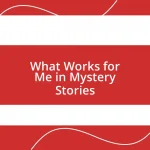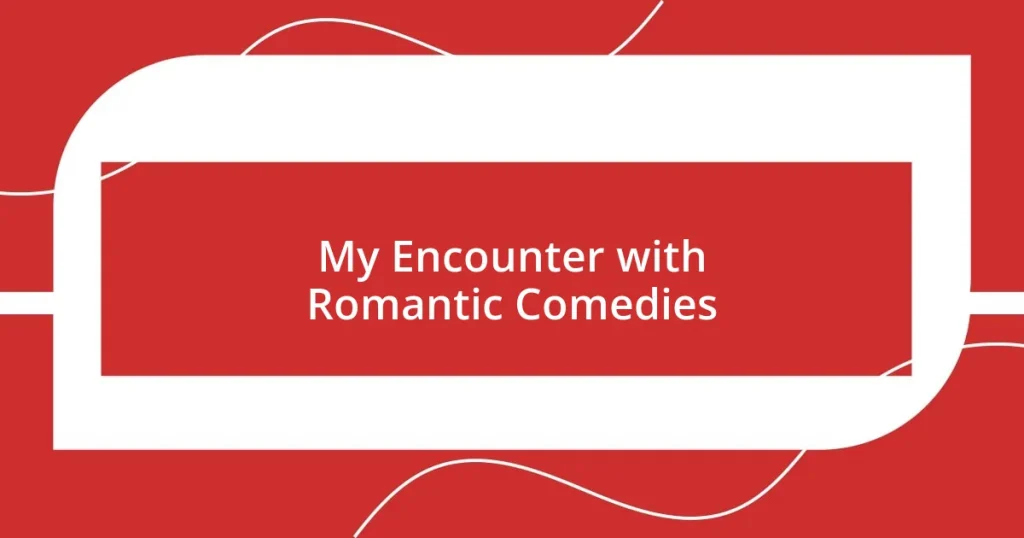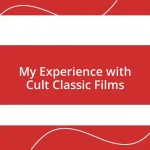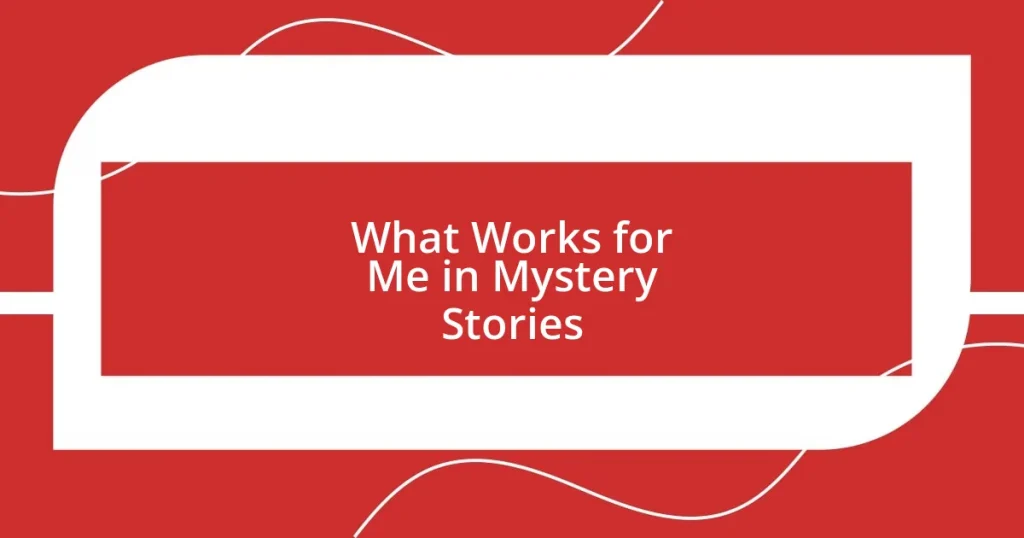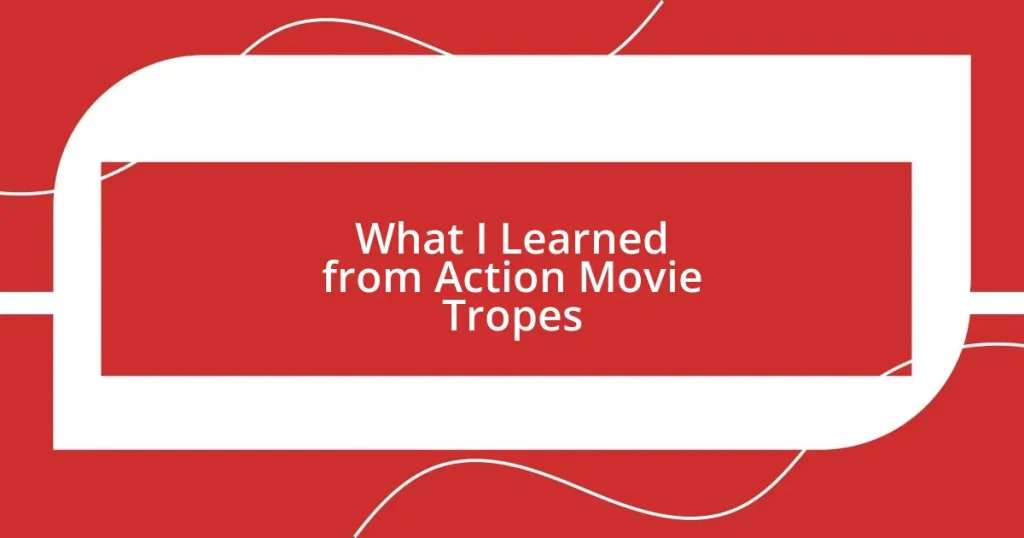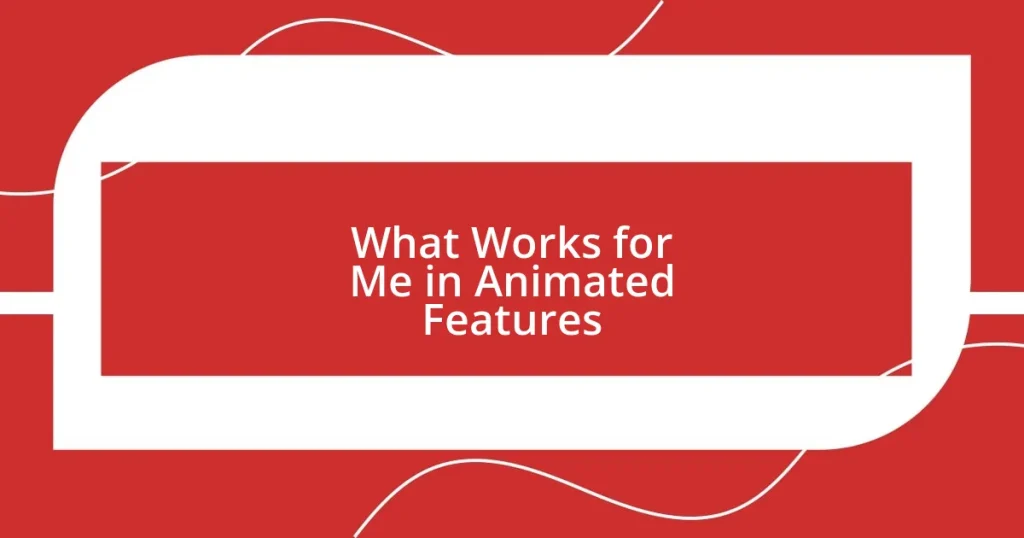Key takeaways:
- Romantic comedies blend humor and emotion, effectively capturing the complexities of love through relatable characters and situations.
- The genre has evolved from early classics, like “It Happened One Night,” to modern films that reflect societal shifts in dating and relationships.
- Key elements include relatable characters, meet-cutes, comedic conflicts, humor, and reassuring happy endings.
- Films impart valuable lessons about love, self-acceptance, communication, and the importance of timing in relationships.
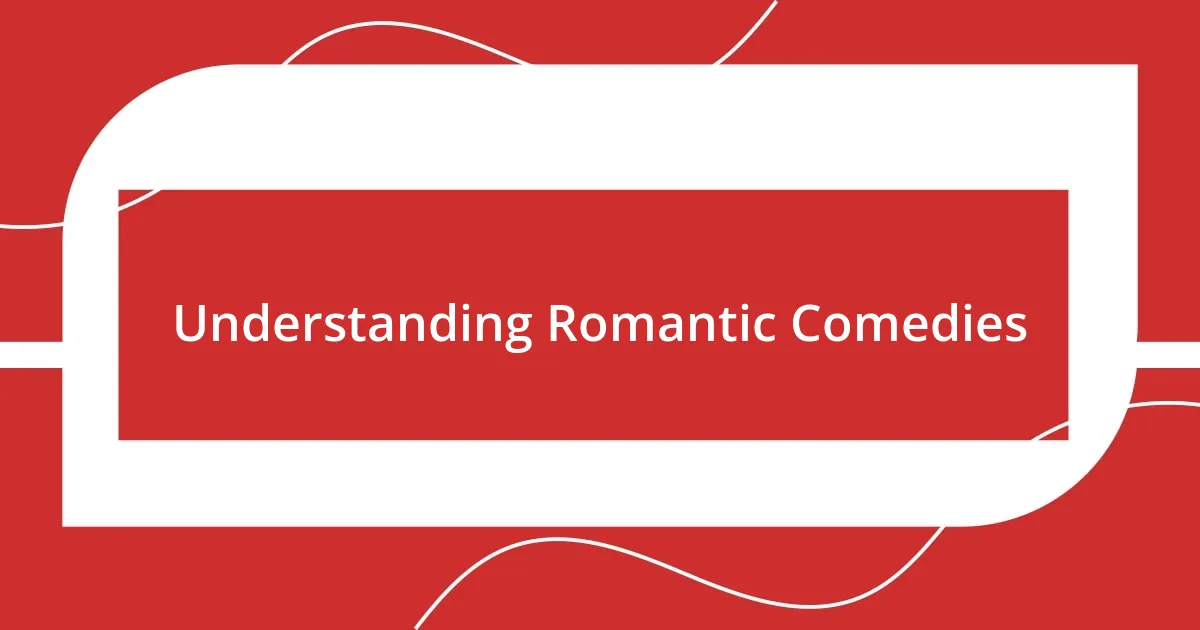
Understanding Romantic Comedies
Romantic comedies, often affectionately dubbed “rom-coms,” are a delightful blend of humor, love, and heartfelt moments. I remember watching “10 Things I Hate About You” for the first time; the way it balanced lighthearted banter with genuine emotions left a lasting impression on me. Isn’t it fascinating how these films can capture the dizzying highs and lonely lows of romance in such an entertaining way?
At their core, romantic comedies explore the complexities of love through relatable characters and situations. I often find myself laughing and crying simultaneously, especially during those iconic scenes where misunderstandings lead to chaotic revelations. Have you ever experienced that moment where life imitates art, and you see your own love stories mirrored on screen?
What truly sets romantic comedies apart is their ability to evoke feelings of hope and joy. I can’t count the times I’ve felt uplifted after watching one, even on the most mundane of days. With their predictable yet comforting endings, they remind us that love, despite its challenges, often finds a way, leaving us to wonder: isn’t that what we all long for deep down?
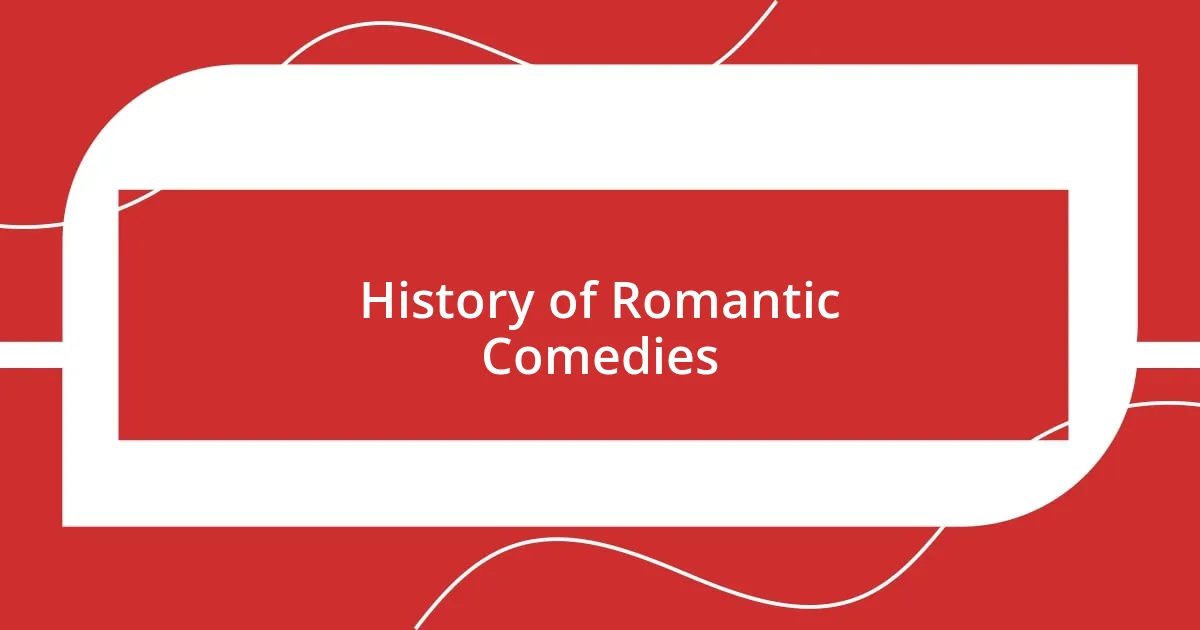
History of Romantic Comedies
Over the years, romantic comedies have evolved significantly, tracing back to the silent film era. Early classics like “It Happened One Night” in 1934 set the tone for blending romance with comedic encounters, leaving an indelible mark on the genre. When I first watched that film, I was struck by its innovative storytelling—imagine falling in love while on the run! It’s this kind of whimsical premise that has captivated audiences for decades.
As the genre blossomed through the mid-20th century, films like “Roman Holiday” and “Breakfast at Tiffany’s” introduced iconic characters who embodied the spirit of romantic escapades. I can still remember reveling in the charm of Audrey Hepburn, a testament to how strong female leads shaped the narrative landscape. Her stories inspired countless individuals, including me, to dream about adventurous love stories. How did those films shape your perceptions of love?
The ’90s and early 2000s brought a surge of popular rom-coms, from “Pretty Woman” to “Notting Hill,” reinforcing the appeal of opposites attracting and serendipitous encounters. These films often reflect societal shifts and aspirations—think of how “Bridget Jones’s Diary” tackled the quirks of modern dating. It resonated deeply with my own experiences, as I found it both relatable and laughably chaotic. There’s something timeless about the way romantic comedies echo our own struggles with love, isn’t there?
| Era | Key Films |
|---|---|
| Early Cinema | It Happened One Night, The Shop Around the Corner |
| Golden Age | Roman Holiday, Breakfast at Tiffany’s |
| Modern Era | Pretty Woman, Notting Hill |
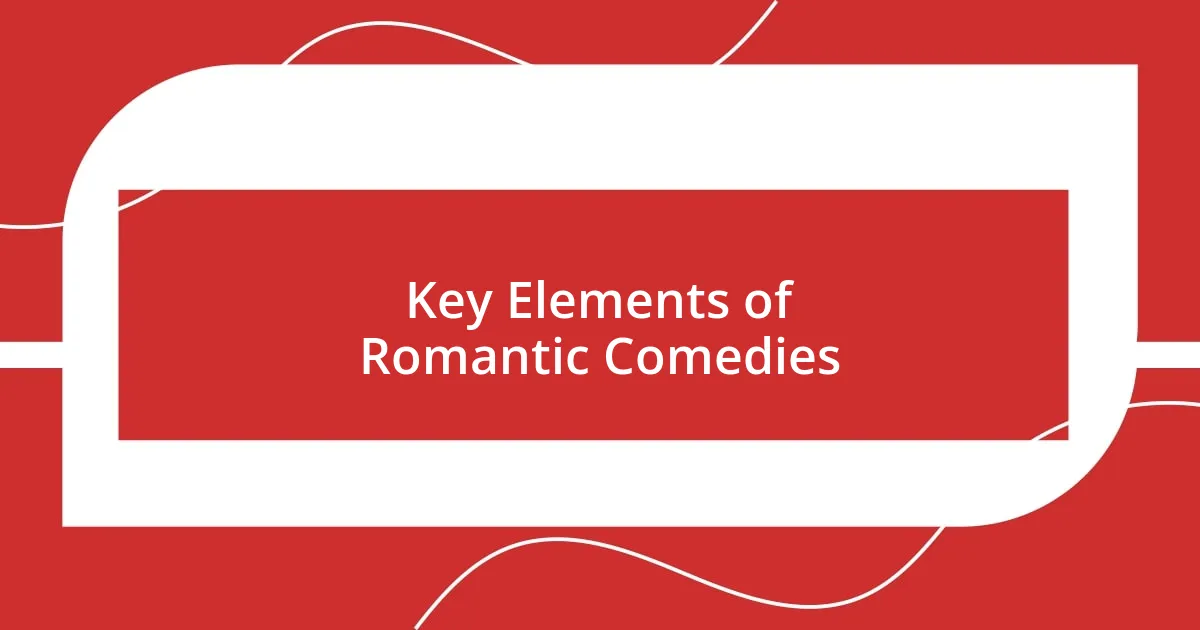
Key Elements of Romantic Comedies
Romantic comedies thrive on a few signature elements that make them irresistibly charming. One isn’t just the love story but the myriad of quirky characters that bring life to the narrative. I distinctly recall watching “When Harry Met Sally” and feeling like I knew those characters personally. It’s that relatable chemistry between protagonists, often marked by comedic misunderstandings, that really makes the genre sing.
Here are some key elements to look out for in romantic comedies:
- Relatable Characters: They often wrestle with personal struggles that mirror our own.
- Meet-Cute: A charming, often awkward first encounter that sparks the romance.
- Conflict: Misunderstandings or external obstacles that add tension to the love story.
- Humor: Witty dialogue and humorous situations lighten the emotional load.
- Happy Ending: A reassuring conclusion that restores hope and belief in love, typically featuring a joyful reunion.
Diving deeper into the structure of rom-coms, I’m always struck by how pivotal supporting characters can be. They often act as comedic relief or wisdom bearers, guiding the main couple with witty advice or, at times, causing additional turmoil. Watching “Crazy, Stupid, Love,” I chuckled at Ryan Gosling’s character who becomes a sort of mentor to Steve Carell’s character. That dynamic is so engaging! It adds layers not only to the plot but also to our understanding of love’s complexities through different lenses.

Influential Romantic Comedy Films
The impact of influential romantic comedies can’t be overstated. Films like “As Good as It Gets” offered more than just laughs; they provided multifaceted characters that challenged societal norms around love and relationships. I found myself reflecting on how Jack Nicholson’s character navigated his flaws yet still experienced profound connections. It made me think—how often do we let our imperfections hold us back from love?
In later years, “The Proposal” brought a fresh energy with its delightful blend of humor and romantic tension. I remember laughing out loud at the unexpected twists and the undeniable chemistry between Sandra Bullock and Ryan Reynolds. That film encapsulated the charm of how love can often come wrapped in chaos. Wasn’t it intriguing to see the characters grow through their hilarious misadventures?
Another gem that deserves mention is “10 Things I Hate About You,” a modern adaptation of Shakespeare’s “The Taming of the Shrew.” This film not only revitalized the genre for a new generation but also reminded me of the power of vulnerability in love. The way the protagonists navigated relationships spoke volumes to my teenage self, highlighting that true love often blossomed through authenticity and emotional honesty. How do you see the evolution of romantic comedies shaping your view of romance?
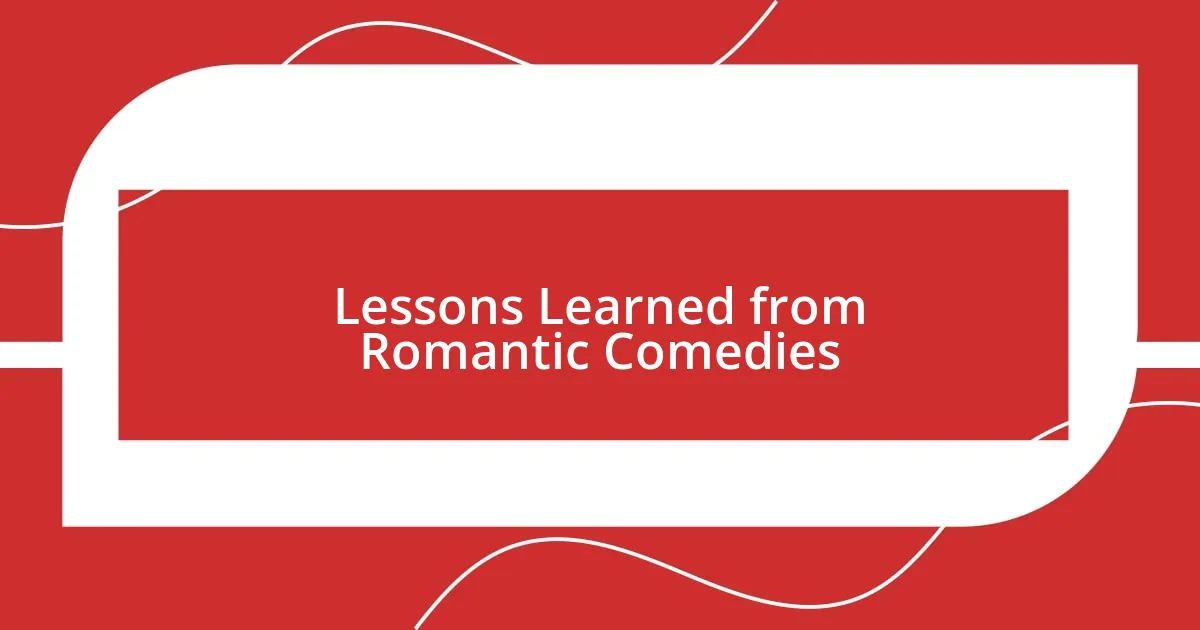
Lessons Learned from Romantic Comedies
Romantic comedies have a unique way of teaching us about love and self-acceptance. Watching characters grapple with their flaws often resonates deeply with me. I remember a scene in “Notting Hill” where Julia Roberts’ character, despite her star status, expresses insecurity about being ‘just a girl’ in front of Hugh Grant. This moment hit home for me—how often do we struggle against our self-doubt in relationships?
Another lesson these films impart is the importance of communication in love. I still smile when I recall the comedic chaos that ensues in “How to Lose a Guy in 10 Days,” where both characters have conflicting goals yet end up genuinely connecting. It made me realize how crucial transparency is, even amid clumsy attempts to bond. Have you ever found yourself in a situation where miscommunication turned into a delightful moment of clarity?
Lastly, the concept of timing stands out starkly in many romantic comedies. I can’t forget the romance in “500 Days of Summer” and how it reminded me that love isn’t always a straight path. The non-linear narrative showed that sometimes, the timing just isn’t right, regardless of how strong the feelings may be. This film taught me that it’s okay to embrace the journey of love, with all its ups and downs, rather than fixating solely on the destination. Isn’t it interesting how these narratives mirror our own experiences?
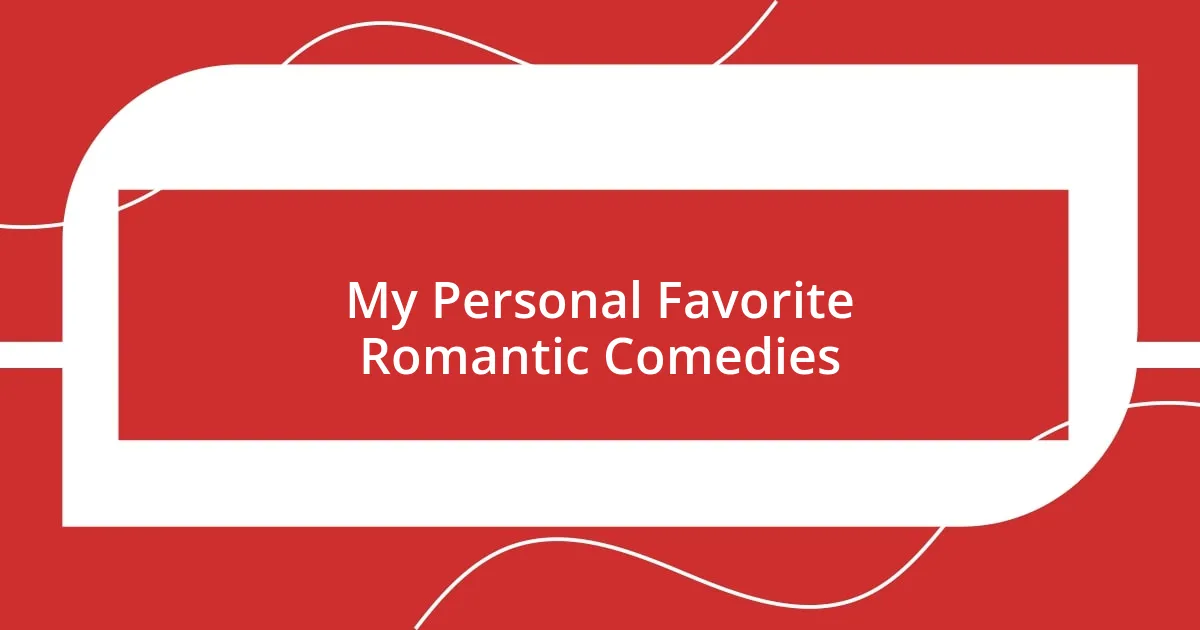
My Personal Favorite Romantic Comedies
One of my all-time favorite romantic comedies is “Love Actually.” There’s something about the intertwining stories that truly resonates with me. The uplifting moments, peppered with heartbreak, remind me that love takes many forms, often catching us off guard. Remember the scene with the cue cards? It melts my heart every time—such a simple yet profound gesture of affection that encourages vulnerability. Isn’t it incredible how small actions can convey so much emotion?
“Crazy, Stupid, Love” also holds a special place in my heart. The film’s unique structure showcases multiple relationships, weaving humor and raw emotion together seamlessly. I laugh out loud when I think about Ryan Gosling’s character giving Steve Carell a makeover—it’s a testament to how friendship often plays a crucial role in romance. I can relate to times when a friend pushed me out of my comfort zone, helping me embrace who I am. Has a friend ever helped you see yourself in a new light?
Another charming favorite is “The Wedding Singer.” The nostalgic ’80s vibe and the genuine connection between Adam Sandler and Drew Barrymore remind me of young love’s innocence and spontaneity. I remember watching it for the first time and feeling the rush of nostalgia as it brought back memories from my own high school crushes. The way the film captures those seemingly simple moments made me appreciate how love grows through shared experiences. Don’t you think those little memories shape our romantic journeys in more ways than we realize?
